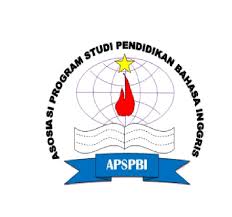Unveiling Online Collaborative Learning and Sense of Community in an English Drama Course: Indonesian EFL Undergraduate Students View
DOI:
https://doi.org/10.22515/elereviews.v4i2.9781Keywords:
online collaborative learning, sense of community, drama course, EFLAbstract
A sense of community enhances the exchange of information, fosters cooperation and support, and strengthens commitment to group objectives. Numerous studies have investigated the importance of community and collaborative learning activities within online environments. However, online collaborative learning and a sense of community in an English Drama Course (EDC) are still under-explored. The current study aims to fill that gap by following a group of 131 undergraduate students participating in a 16-week online EDC. Data was gathered via a questionnaire and a semi-structured interview coded by following the dimensions of the questionnaire. The current study reveals that students view online collaborative learning in an EDC positively and generate interactive engagement, teamwork, creativity, efficacy, social skills, problem-solving skills, idea generation, and enjoyment, which is particularly advantageous for navigating unfamiliar subject matter or foreign language contexts. The collaborative learning process hinges on establishing a robust sense of community, emphasizing shared objectives, effective communication, trust, collective problem-solving, and a supportive environment, highlighting the importance of addressing barriers to fostering this communal ethos for successful collaboration. The implications of this study might catalyze researchers and educators to consider developing a sense of community in online collaborative environments.
Downloads
References
Adams, K. (2021). Research to resource: Developing a sense of community in online learning environments. Update: Applications of Research in Music Education, 39(2), 5-9. https://doi.org/10.1177/8755123320943985
Agung, A. S. N., Surtikanti, M. W., & OP, C. A. Q. (2020). Students’ perception of online learning during COVID-19 pandemic: A case study on the English students of STKIP Pamane Talino. Soshum: Jurnal Sosial dan Humaniora, 10(2), 225-235. https://doi.org/10.31940/soshum.v10i2.1316
Alasmari, N., & Alshae’el, A. (2020). The effect of using drama in English language learning among young learners: A case study of 6th grade female pupils in Sakaka city. International Journal of Education and Literacy Studies, 8(1), 61-73. https://doi.org/10.7575/aiac.ijels.v.8n.1p.61
Alvarez, I., Espasa, A., & Guasch, T. (2012). The value of feedback in improving collaborative writing assignments in an online learning environment. Studies in Higher Education, 37(4), 387-400. https://doi.org/10.1080/03075079.2010.510182
Baker, K. Q., & Moyer, D. M. (2019). The relationship between students’ characteristics and their impressions of online courses. American Journal of Distance Education, 33(1), 16-28. https://doi.org/10.1080/08923647.2019.1555301
Başci, Z., & Gündoğdu, K. (2011). The attitudes and opinions of prospective teachers related to drama course: The case of Atatürk University. Elementary Education Online, 10(2), 454-467. https://ilkogretim-online.org/index.php/pub/article/view/1066
Baskara, F. X. R. (2023). Fostering a sense of community and engagement in virtual flipped classrooms: The role of asynchronous sessions. Proceedings ADRI International Conference on Multidisciplinary Research, 1(1), 202-213. https://prosiding.p-adri.or.id/index.php/icadri/article/view/32
Brown, R. E. (2001). The process of community-building in distance learning classes. Journal of Asynchronous Learning Network, 5(2), 18-35. https://doi.org/10.24059/olj.v5i2.1876
Chang, H., & Windeatt, S. (2016). Developing collaborative learning practices in an online language course. Computer Assisted Language Learning, 29(8), 1271-1286. https://doi.org/10.1080/09588221.2016.1274331
Chatterjee, R., & Correia, A. P. (2020). Online students’ attitudes toward collaborative learning and sense of community. American Journal of Distance Education, 34(1), 53-68. https://doi.org/10.1080/08923647.2020.1703479
Creswell., J. W. (2012). Educational research: Planning, conducting, and evaluating quantitative and qualitative research (4th ed.). Pearson Education Inc.
Cziboly, A., & Bethlenfalvy, A. (2020). Response to COVID-19 Zooming in on online process drama. Research in Drama Education: The Journal of Applied Theatre and Performance, 25(4), 645-651. https://doi.org/10.1080/13569783.2020.1816818
Dawoud, L. K. A., Hasim, Z., & Saad, M. R. M. (2020). Creative drama in teaching English language: A systematic review of the literature. PalArch’s Journal of Archaeology of Egypt/Egyptology, 17(7), 11752-11768. https://archives.palarch.nl/index.php/jae/article/view/4568/4518
Doğuer, G. N., & Öner, D. (2023). Examining sense of community in the pandemic: A case of an online course. Journal of Educational Technology and Online Learning, 6(3), 602-624. https://doi.org/10.31681/jetol.1232789
Gay, L. R., Mills, G. E., & Airasian, P. W. (2012). Educational research : Competencies for analysis and applications (10th ed.). Pearson Education Inc.
González-Anta, B., Orengo, V., Zornoza, A., Peñarroja, V., & Martínez-Tur, V. (2021). Understanding the sense of community and continuance intention in virtual communities: The role of commitment and type of community. Social Science Computer Review, 39(3), 335-352. https://doi.org/10.1177/0894439319859590
Guasch, T., Espasa, A., Alvarez, I. M., & Kirschner, P. A. (2013). Effects of feedback on collaborative writing in an online learning environment. Distance Education, 34(3), 324-338. https://doi.org/10.1080/01587919.2013.835772
Harmer, J. (2007). How to teach English. Pearson Education Ltd.
Henry, L. A., Castek, J., O’Byrne, W. I., & Zawilinski, L. (2012). Using peer collaboration to support online reading, writing, and communication: An empowerment model for struggling readers. Reading and Writing Quarterly, 28(3), 279-306. https://doi.org/10.1080/10573569.2012.676431
Hoang, D. T. N., & Hoang, T. (2022). Enhancing EFL students’ academic writing skills in online learning via Google Docs-based collaboration: A mixed-methods study. Computer Assisted Language Learning, 37(7), 1504–1526. https://doi.org/10.1080/09588221.2022.2083176
Horasan-Doğan, S., & Cephe, P. T. (2020). The effects of creative drama on student teachers’ creative pedagogy and identity. Thinking Skills and Creativity, 38, 100736. https://doi.org/10.1016/j.tsc.2020.100736
Hulse, B., & Owens, A. (2019). Process drama as a tool for teaching modern languages: supporting the development of creativity and innovation in early professional practice. Innovation in Language Learning and Teaching, 13(1), 17-30. https://doi.org/10.1080/17501229.2017.1281928
Jiang, D., & Zhang, L. J. (2020). Collaborating with ‘familiar’ strangers in mobile-assisted environments: The effect of socializing activities on learning EFL writing. Computers and Education, 150, 103841. https://doi.org/10.1016/j.compedu.2020.103841
Jung, I., Kudo, M., & Choi, S. K. (2012). Stress in Japanese learners engaged in online collaborative learning in English. British Journal of Educational Technology, 43(6), 1016-1029. https://doi.org/10.1111/j.1467-8535.2011.01271.x
Karaosmanoglu, G., & Adiguzel, O. (2021). An overview of the creative drama experience in the information technologies and software course from the students’ perspective. Journal of Qualitative Research in Education, 26, 1-22. https://doi.org/10.14689/enad.26.1
Khalil, Z. M. (2018). EFL students’ perceptions towards using Google Docs and Google Classroom as online collaborative tools in learning grammar. Applied Linguistics Research Journal, 2(2), 33-48. https://doi.org/10.14744/alrj.2018.47955
Krishnan, J., Yim, S., Wolters, A., & Cusimano, A. (2019). Supporting online synchronous collaborative writing in the secondary classroom. Journal of Adolescent and Adult Literacy, 63(2), 135-145. https://doi.org/10.1002/jaal.969
Lee, J., & Osman, G. (2021). Students’ experiences and perceptions of online collaborative learning in higher education of Korea and the UAE. Turkish Online Journal of Distance Education, 22(1), 1-18. https://doi.org/10.17718/TOJDE.849870
Lin, X., Dai, Y., & Shi, H. (2022). Comparing the sense of online classroom community between students from urban and rural areas at a Chinese university. Journal of Educators Online, 19(3), 140-151. https://doi.org/10.9743/JEO.2022.19.3.9
Lin, X., & Gao, L. (2020). Students’ sense of community and perspectives of taking synchronous and asynchronous online courses. Asian Journal of Distance Education, 15(1), 169-179. https://www.asianjde.com/ojs/index.php/AsianJDE/article/view/448
Magen-Nagar, N., & Shonfeld, M. (2018). The impact of an online collaborative learning program on students’ attitude towards technology. Interactive Learning Environments, 26(5), 621-637. https://doi.org/10.1080/10494820.2017.1376336
McMillan, D. W., & Chavis, D. M. (1986). Sense of community: A definition and theory. Journal of Community Psychology, 14(1), 6-23. https://psycnet.apa.org/doi/10.1002/1520-6629(198601)14:1%3C6::AID-JCOP2290140103%3E3.0.CO;2-I
Passig, D., & Maidel-Kravetsky, J. (2016). The impact of collaborative online reading on summarizing skills. Education and Information Technologies, 21(3), 531-543. https://doi.org/10.1007/s10639-014-9337-5
Pesen, A., & Üzüm, B. (2017). The analysis of self efficacies of English language teachers in terms of creative drama use in education. Universal Journal of Educational Research, 5(8), 1378-1385. https://doi.org/10.13189/ujer.2017.050811
Priya, A. (2021). Case study methodology of qualitative research: Key attributes and navigating the conundrums in its application. Sociological Bulletin, 70(1), 94-110. https://doi.org/10.1177/0038022920970318
Rezeq, K. A. A., & Taha, M. A. A. (2018). Problems English majors encounter in learning drama in English at Al Aqsa University in Gaza and ways to reduce them. International Journal of Research in English Education (IJREE), 3(3), 29-45. http://ijreeonline.com/article-1-101-fa.pdf
Roberts, T. S. (2004). Online collaborative learning: Theory and practice. Information Science Publishing.
Schwehm, J., Saxton, J., & Stuckey, A. (2017). Promoting engagement and community in online courses: It’s all about the writing. In K. Elufiede, B. Flynn, & J. S. Olson (Eds.), Proceedings of the 41st Annual Conference of Adult Higher Education Alliance, (pp. 40-46). www.ahea.org
Sellés, N. H., Muñoz-Carril, P. C., & González-Sanmamed, M. (2015). Student’s perceptions of online collaborative learning. In Proceedings of INTED2015 Conference, (pp. 3675-3682). IATED. https://www.researchgate.net/publication/297918384
Shakfa, M. D. A. (2012). Difficulties students face in understanding drama in English literature at the Islamic University of Gaza (IUG). English Language Teaching, 5(9), 95-103. https://doi.org/10.5539/elt.v5n9p95
Stoytcheva, M. (2018). Students’ perceptions of online collaboration in a distance learning French language course. AIP Conference Proceedings, 2048, 020030. https://doi.org/10.1063/1.5082048
Su, Y., Li, Y., Liang, J. -C., & Tsai, C. -C. (2018). Moving literature circles into Wiki-based environment: The role of online self-regulation in EFL learners’ attitude toward collaborative learning. Computer Assisted Language Learning, 32(5-6), 556-586. https://doi.org/10.1080/09588221.2018.1527363
Subirà, M. P. – M., & Catasús, M. G. (2007). Social dimension of virtual collaborative learning. RED. Revista de Educación a Distancia, 6(18), 56-62. http://www.um.es/ead/red/18
Such, B. (2019). Scaffolding English language learners for online collaborative writing activities. Interactive Learning Environments, 29(3), 473-481. https://doi.org/10.1080/10494820.2019.1579233
Surkamp, C., & Viebrock, B. (Eds.). (2018). Teaching English as a foreign language: An introduction. J. B. Metzler Verlag.
Thorkelsdóttir, R. B. (2020). The complex role of drama teaching and drama teachers’ learning trajectories in an Icelandic context. Research in Drama Education: The Journal of Applied Theatre and Performance, 25(4), 593-612. https://doi.org/10.1080/13569783.2020.1796615
Trespalacios, J., & Uribe-Florez, L. J. (2020). Developing online sense of community: Graduate students’ experiences and perceptions. The Turkish Online Journal of Distance Education, 21(1), 57-72. https://doi.org/https://doi.org/10.17718/tojde.690340
Vygotsky, L. S., & Cole, M. (1978). Mind in society: Development of higher psychological processes. Harvard University Press.
Waugh, M. L., & Su, J. (2016). Student perceptions of a successful online collaborative learning community. Journal of Interactive Online Learning, 14(1), 1-16. https://www.ncolr.org/jiol/issues/pdf/14.1.1.pdf
Wells, T., Sandretto, S., & Tilson, J. (2021). Learning “what it’s like to be someone else apart from yourself”: Developing holistic empathy with process drama. Pedagogy, Culture and Society, 31(4), 809-825. https://doi.org/10.1080/14681366.2021.1949633
Xie, K., Hensley, L. C., Law, V., & Sun, Z. (2019). Self-regulation as a function of perceived leadership and cohesion in small group online collaborative learning. British Journal of Educational Technology, 50(1), 456-468. https://doi.org/10.1111/bjet.12594
Yin, R. K. (2014). Case study research design and methods (5th ed.). Sage.
Yuan, J., & Kim, C. (2014). Guidelines for facilitating the development of learning communities in online courses. Journal of Computer Assisted Learning, 30(3), 220-232. https://doi.org/10.1111/jcal.12042
Zhao, R., Chen, Y., & Zhang, M. (2021). The effects of the sense of community on online learning system. In Proceedings of the 2021 6th International Conference on Distance Education and Learning, (pp. 207-211). ACM Digital Library. https://doi.org/10.1145/3474995.3475030
Downloads
Published
How to Cite
Issue
Section
Citation Check
License
Copyright (c) 2024 Supeno, Rina Husnaini Febriyanti

This work is licensed under a Creative Commons Attribution-NonCommercial 4.0 International License.
Authors retain copyright and grant the journal right of first publication with the work simultaneously licensed under a Creative Commons Attribution License that allows others to share the work with an acknowledgement of the work's authorship and initial publication in this journal.
This ejournal system and its contents are licensed under
a Creative Commons Attribution-NonCommercial 4.0 International License








